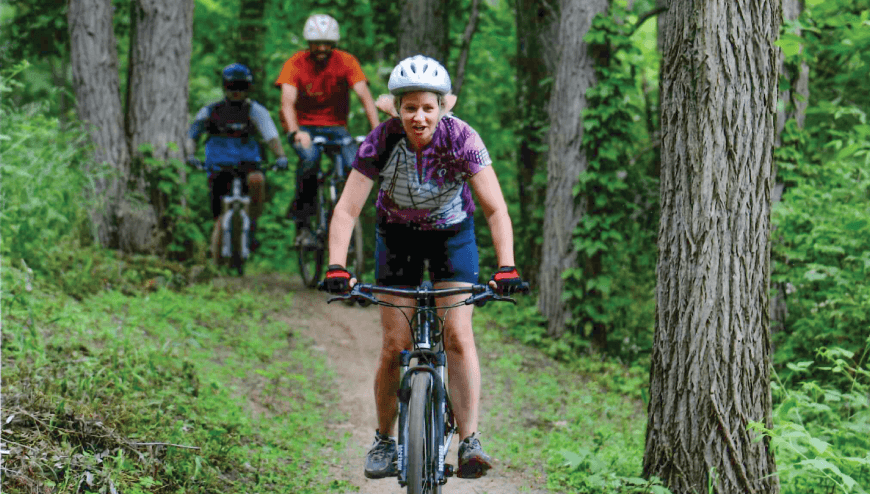
Outdoor Spaces that Transform Communities
The public spaces in our communities say a lot about our values and priorities. Well-conceived public spaces provide a sense of culture and place. They inspire us, bring us together and even have the potential to strengthen bonds across barriers such as race, income, religion and other differences that sometimes divide us in our private lives and pursuits.
At the Community Foundation for Southeast Michigan, we invest in outdoor public spaces throughout the seven counties of southeast Michigan because they add so much to the quality of life in our region. In addition to intangible qualities like connectedness and sense of place, they boost property values, improve the environment and help us stay healthy by providing places to bike, walk and experience the restorative benefits of nature. The stories that follow touch upon just a few of the diverse assortment of outdoor places that have been created, improved or sustained with grants from the Community Foundation. We hope you will get out and explore some of these parks and trails in the coming months, or enjoy time with family and friends at your own particular favorites in our region.
A $25,000 grant from the Chelsea Community Foundation, an affiliate of the Community Foundation for Southeast Michigan, contributed to the completion of the first five-mile leg of an extensive trail system in the Waterloo State Recreation Area in western Washtenaw County. The Waterloo Trail, recently renamed the DTE Energy Foundation Trail in recognition of the utility’s major underwriting, will total 20-miles of twisting, turning, sloping and climbing bike-optimized pathways upon its completion in 2020.
The cutting-edge, sustainable trail also accommodates trail-runners, hikers and cross-country skiers. It incorporates natural elements such as native rock and stone and reclaimed wood, and it is wide enough to safely accommodate users at varying speeds and ability levels.
The trail meanders through the scenic Waterloo Recreation Area, the largest recreation area in Michigan’s lower peninsula, encompassing 21,000 acres of forests, lakes and wetlands. It draws 600,000 visitors annually for camping, fishing, swimming, horseback riding, biking and hiking.
The Michigan Department of Natural Resources reports that plans are underway to connect the DTE Energy Foundation Trail to the popular Potawatomi Trail in the adjacent Pinkney State Recreation area, which attracts biking enthusiasts from neighboring states and Ontario, and the Huron-Waterloo trail, which is still under construction.
The creation of a destination-worthy trail system in the Chelsea-Waterloo area positions the region to benefit from the economic impact of mountain biking — currently the fastest growing tourism niche in Michigan. While hunting and fishing still account for more than $5 billion in annual economic impact, license sales for those sports are down 10 percent and 33 percent, respectively. This generational shift is leading rural communities to look for new ways to market themselves to people looking for a mix of nature, recreation and fitness.
If examples from other parts of the country are any indication, the trail will also attract some of the amenities that accompany ecotourism — such as bike shops and outfitters, microbreweries and bed and breakfasts. Not only do these new businesses create jobs, but they also contribute to a quality of life that attracts new residents, including young professionals and retirees with leisure time and resources.
